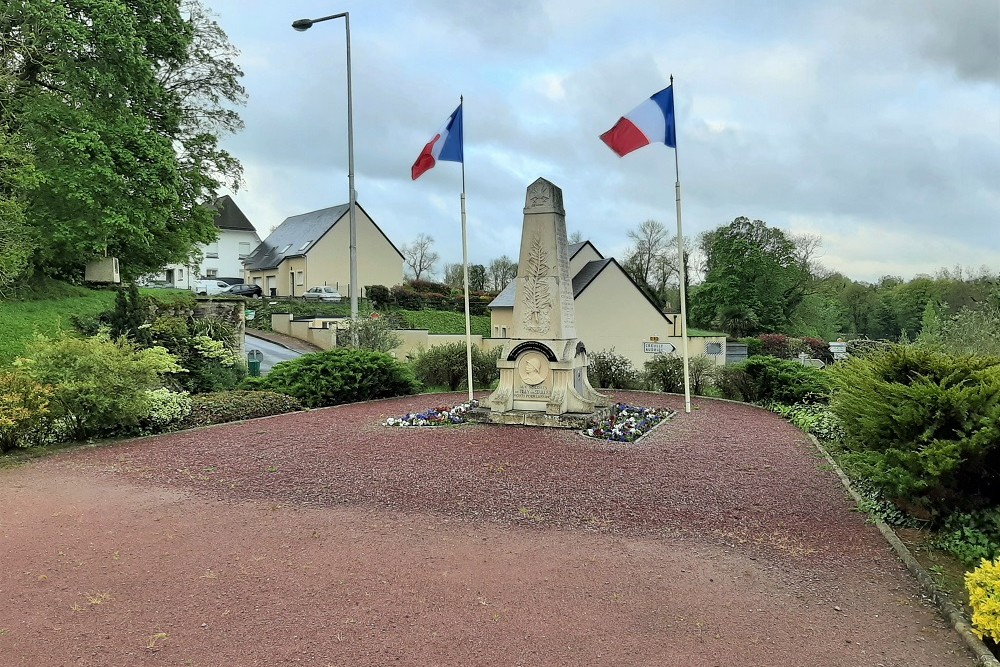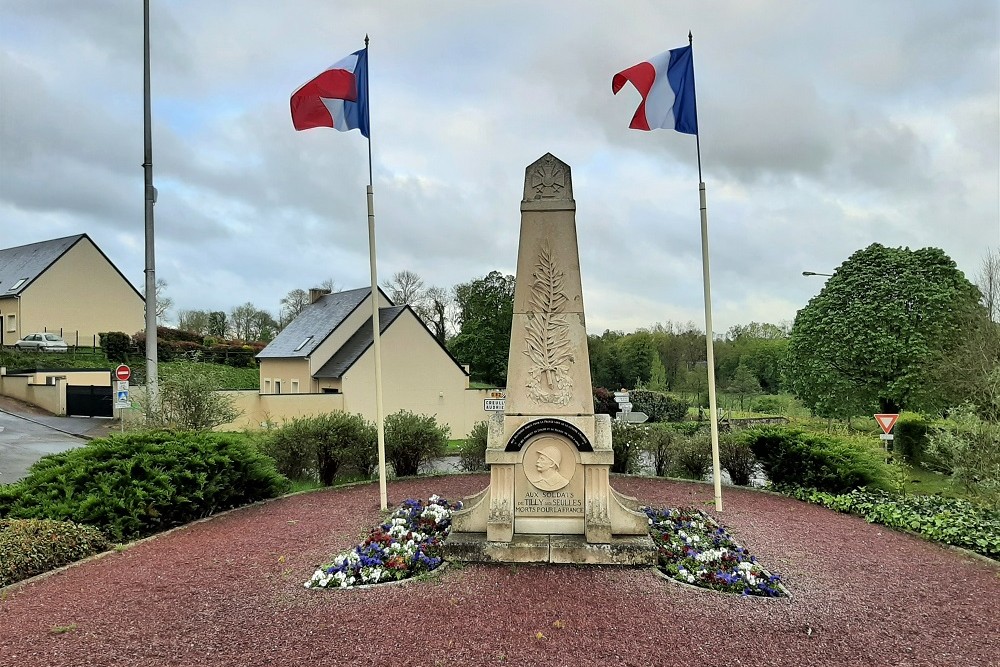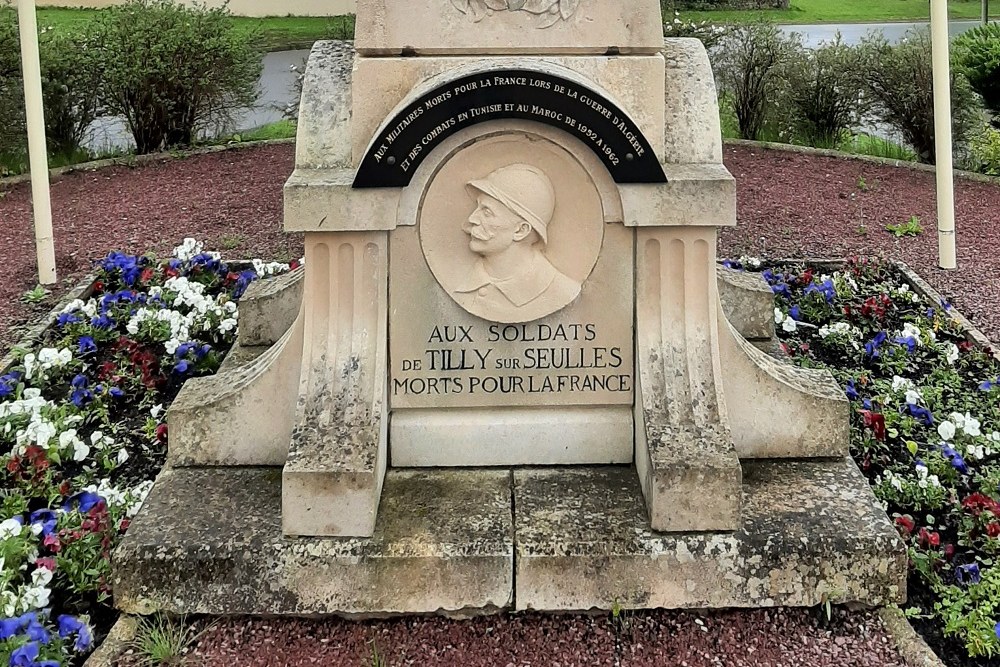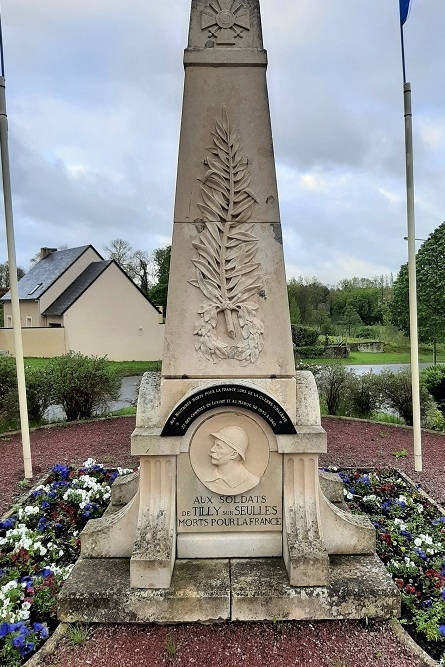War Memorial Tilly-sur-Seulles
"To the soldiers
from Tilly sur Seulles
died for France"
Above the medallion it says:
"To the soldiers who died for France in the war in Algeria
and the fighters in Tunisia and Morocco from 1952 to 1962"
The names of the victims are written on the sides of the monument. On the right there is also a memorial plaque for General Leclerc (officially Philippe-Marie, Viscount of Hauteclocque)
Jacques-Philippe Leclerc was a French general and war hero.
He studied at the prestigious military schools of Saint-Cyr (1924) and Saumur.
In 1939, as an infantry captain, he was wounded and captured by the Germans, but managed to escape to England. When he heard that General Charles de Gaulle was gathering the Free French Forces from London, he adopted the name Leclerc (to spare his family in France reprisals) and joined de Gaulle.
He was promoted to colonel by de Gaulle and won a number of military victories in French Equatorial Africa. After being promoted to brigadier general, he organized a spectacular 1,000-mile (1,600 km) march from Chad to Tripoli, Libya, to join forces with the British Eighth Army, capturing Italian garrisons along the way. In 1943 he was promoted to major general.
He took part in the invasion of Normandy in 1944 as commander of the Free French
2nd Armored Division, which disembarked on August 1 and took part in the drive to Alençon en Argentan by the Third Army of American General George S. Patton.
On August 20, the 2nd Armored Division was ordered by Supreme Allied Commander Dwight D. Eisenhower to liberate the French capital, and on August 25, the commander of the German garrison in Paris, Dietrich von Choltitz, surrendered to Leclerc. The next day, Leclerc and de Gaulle formally entered Paris in triumph.
Leclerc went on to liberate Strasbourg (23 November 1944) and then led his men into Germany and captured Berchtesgaden. In July 1945, Leclerc was appointed commander of the French expeditionary force to the Far East. That same year he legally changed his name from Philippe-Marie, vicomte de Hauteclocque, to Jacques-Philippe Leclerc de Hauteclocque, using his war name.
In March 1946, Leclerc was sent to French-occupied Indochina. He saw that the nature of the problems there was more political than military, but he stirred controversy in France with that message and resigned. In July 1946 he became Inspector General of the French troops stationed in North Africa. He died there in a plane crash. In 1952, the French government posthumously appointed him Marshal of France.
Do you have more information about this location? Inform us!
Source
- Text: TracesOfWar
- Photos: Koos Winkelman
Nearby
Museum
Point of interest
Monument
- 50th Northumbrian Infantry Division Memorial Lingèvres - Lingèvres
- War Memorial Lingrèves - Lingrèves
- Durham Light Infantry Memorial Lingèvres - Lingèvres
Cemetery
- Commonwealth War Cemetery Tilly-sur-Seulles - Tilly-sur-Seulles
- Commonwealth War Cemetery Hottot-les-Bagues - Hottot-les-Bagues
- Commonwealth War Cemetery Jerusalem - Chouain








